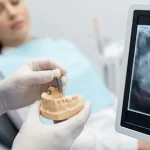Opting for abortion pills to terminate an unwanted pregnancy is surprisingly common, with 251,377 women in England and Wales having abortions in 2022 alone. Research has shown that 86% of the abortions in the UK are medically induced (medical abortion). Despite abortion pills being the most common way of terminating a pregnancy, it’s only natural to wonder about their safety. Are abortion pills safe for consumption? How many times can you use them? Are there any side effects? We answer all these questions and many more, so you can have peace of mind.
What are abortion pills?
Getting an understanding of abortion pills and how they actually work is key to answering questions about its safety. For curious minds, medical abortion or abortion by pill is a non-invasive and safe method of terminating a pregnancy. According to the Abortion Act of 1967, women in the UK can use abortion pills to terminate pregnancies of up to 10 weeks from the comfort of their home. After this period, they need to visit a clinic or a medical establishment. The term ‘abortion pill’ is inaccurate as it requires multiple pills! The process itself involves the use of two different medications, namely Mifepristone and Misoprostol. This method is considered safe and effective as it mimics miscarriage-like symptoms to expel the pregnancy.
Diving a bit further into how these pills work, mifepristone (the first pill) is to be taken right away to stop the pregnancy in the womb. It does this by blocking the production of progesterone hormone in the body – which is crucial for the further development of the pregnancy. Without progesterone, the uterine leaning tends to break down, thus detaching the pregnancy.
The next pill for medical abortion, taken after the mifepristone, is misoprostol. This pill is supposed to be taken 24-48 hours after the mifepristone (as guided by your abortion provider). Misoprostol is primarily responsible for inducing contractions in the uterus, which expels the pregnancy from the body. The experience of this has been likened to bad period cramps and is accompanied by spotting and bleeding. Please know that this is a normal thing during this process. In addition to this, nausea, chills, diarrhoea and vomitings are some commonly experienced side effects, though transitory in nature.
Safety of abortion pills: What the research says
Time to answer the real question: Are abortion pills safe?
The short answer is yes! The use of abortion pills to terminate pregnancies (up to the gestation limit of 10 weeks) has been researched at length, with the outcomes being positive. If you don’t believe us, fret not, for this answer is backed by research. A recent study by Gambir et al (2020) in BMJ Global Health talked about how home-based medical abortions are “effective, safe and acceptable to women,” with safety comparable to when conducted in a clinical environment.
In addition to the above, the risks of this procedure are far less than other similar procedures. If we compare medical abortion to childbirth, for example, the risk of threat to life is significantly higher for the woman giving birth. According to WHO, the maternal mortality rates are alarmingly high, with more than 700 women dying every day in 2023 (from preventable causes pertaining to pregnancy and birth). Thankfully, in the UK, such figures are not so prevalent when it comes to medical abortions.
As for those concerned about the side effects and chances of complications, yes, there are risks – as with any medical procedure – though such cases are rare. It is possible to experience very heavy bleeding, and complications such as the pregnancy tissue not being expelled from the uterus completely which required a surgical abortion procedure to complete the abortion and prevent infection. However, the risk of this is very small and should not discourage you from ordering the abortion pill online to terminate an unwanted pregnancy if you feel that this is the right choice for you. For many women, the burden of going through with the pregnancy is far greater than the risks and side effects.
The most important thing you can do to reduce the risk of complications is to make sure you seek abortion pills from a trusted and reputable healthcare provider. A quick check-up from your preferred medical expert can rule out any instances of possible medical interactions that may arise due to these pills and your prior health conditions. It is recommended to follow any guidelines provided by your abortion clinic carefully.
Summarising the above, it is safe to say that getting an abortion via pills is extremely safe for pregnancies up to the gestation limit of 10 weeks.
So can you have a medical abortion?
Yes and no. While most women can opt to undergo a medical abortion, for some women, surgical abortion makes more sense. Women who have certain reproductive health issues such as PCOS (Polycystic Ovarian Syndrome), endometriosis, an ectopic pregnancy or bleeding disorders are not able to have a medical abortion due to the risk of complications. For these individuals, having a surgical abortion is a safer choice.
Navigating an abortion: Emotional challenges
While we have discussed the more clinical aspects of abortion above, it is easy to forget that this procedure can also result in significant emotional distress. If you choose to have an abortion, you may find it helpful to have the support of your loved ones with whom you can share your struggles transparently. Their support can help you navigate through this what is usually a challenging time. It can also help you work through your emotions around the procedure. A similar outcome can be achieved by having an external support group, if your loved ones are unavailable or if you find it easier to talk to people you don’t know. For those who wish to seek professional help, visiting a counsellor or psychologist can also help. They can help you to process your thoughts and deal with any emotional struggles.
Getting an abortion: The right choice?
We believe that by now you have a clearer understanding of what is involved in a medical abortion looks like and physical and emotional considerations. Whether it is checking for the safest methods to terminate the pregnancy or how to deal with emotional struggles that surround this topic, getting an abortion is a personal choice – your choice. If you intend to terminate a pregnancy, consulting the right medical professionals can help you make informed choices.







